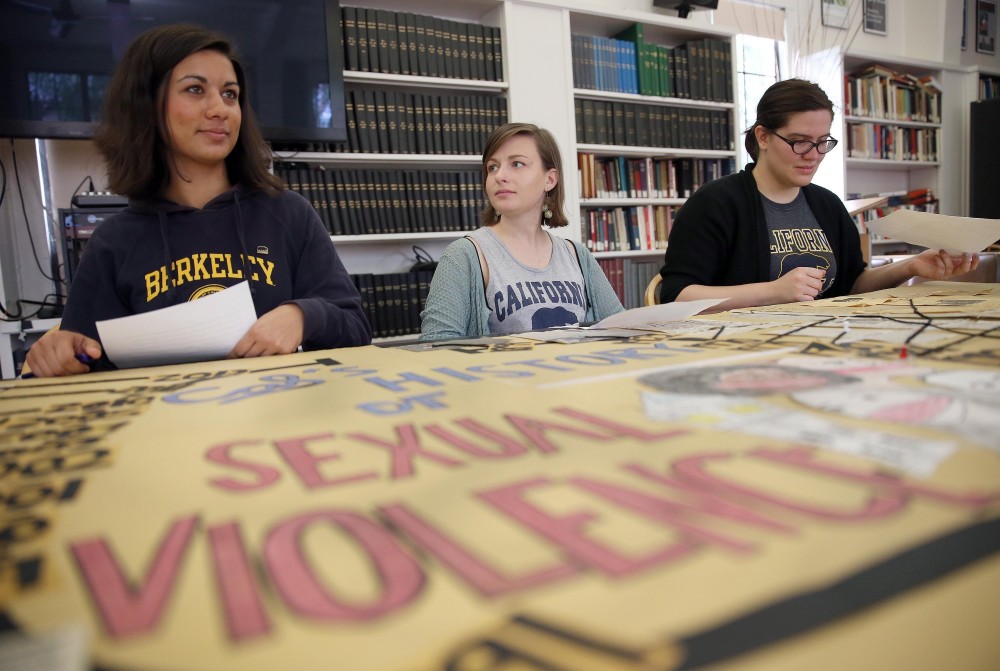EDITORIAL
St. Louis Post-Dispatch.
It’s probably too much to hope that the nation’s college and university campuses can ever be completely free of sexual assault.
But’s not too much to think there will be added protection for women and more accountability, stiffer penalties and new standards for the institutions.
Sen. Claire McCaskill, D-Mo., a leader in the effort to stop sexual assault on campuses, and a bipartisan group of co-sponsors –including Sens. Kirsten Gillibrand, D-N.Y., and Marco Rubio, R-Fla. — introduced legislation Wednesday aimed at protecting and empowering college and university students.
Good for the senators, college administrators and law enforcement officials who have rallied around an issue that for too long, too many people have pretended doesn’t exist.
Just because a college woman wears a short skirt or a low-cut blouse and is drunk, drugged or flirtatious doesn’t mean she is fair game.
Men must be educated to understand that.
Not all education on campus must take place in a classroom or laboratory.
The legislation makes it clear there will be no excuses for preying on women.
It aims to change the “boys will be boys” mentality that has long existed in closed cultures such as colleges and the military — which Ms. McCaskill went after earlier this year.
In preparing the legislation, Ms. McCaskill held a series of roundtable discussions and surveyed 236 schools about how they handle rapes and sexual assaults.
She and her co-sponsors got resistance from some colleges, from the American Council on Education, which represents more than 1,700 college and university presidents and from the American Council of Trustees and Alumni.
Resistance centered around complaints that some schools have limited resources to focus on topics other than education, that some colleges and universities already are working hard to address the serious and complex societal issue and that the rights of the accused were being ignored.
Those complaints are bogus. No one is calling for a presumption of guilt, only that victims’ rights are equal to those of the accused.
And any college or university administrator who doesn’t think that keeping students safe is part of his job should find another line of work.
A more valid criticism was offered by Terry Hartle, a senior vice president for the American Council on Education.
Mr. Hartle told the Post-Dispatch’s Chuck Raasch that the bill shouldn’t give the U.S. Department of Education responsibility for clarifying discrepancies in crime-related definitions and reporting.
That should be the Justice Department’s job, he said.
buy hard on oral jelly generic buy hard on oral jelly online no prescription
That change can be made, if necessary, as the bill makes it way through Congress. Which should happen quickly.
Ms. McCaskill praised Tim Wolfe, president of the University of Missouri system, for being a strong supporter of the legislation and “somebody who has demonstrated — almost by constant contact with my office — that he’s really focused on this issue.”
Specifically, the legislation imposes hefty fines — up to 1 percent of an institution’s operating budget — for schools that don’t comply. Complete withdrawal of federal aid is the only financial penalty available under current law, Ms. McCaskill said, adding that it’s an ineffective deterrent because “everyone knows that is not going to happen.”
Along with establishing realistic fines, the measure takes enforcement of cases involving student athletes away from athletic departments. No more special treatment because someone brings in a lot of money for the university.
The bill also would require schools to make public the results of anonymous surveys about campus assaults, designate new resources and support services for assault survivors, establish minimum training standards for on-campus personnel and increase campus accountability and coordination with law enforcement.
Ms. McCaskill said she would have liked stronger language in the bill to codify the standard of proof for sexual assault, but that in the interest of compromise she backed off that provision.
She also said about 80 percent of the schools surveyed already are meeting that standard of proof.
This is good legislation designed to counter a huge problem, best illustrated by a finding from a White House task force that one in five women is sexually assaulted while in college.
The bill has no chance of becoming law before the next school year begins, with Congress going into recess next month. But once lawmakers are back, this issue should be pushed to the top of the legislative calendar.














































































































































































































































































































































































